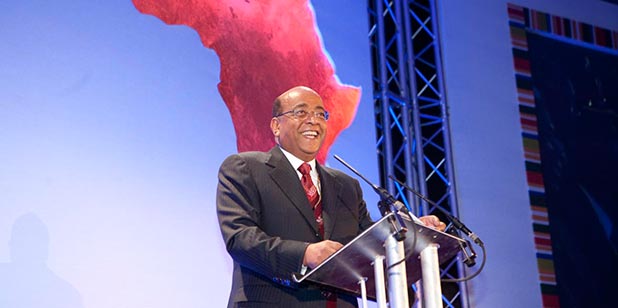By Kemi Osukoya
June 2, 2014
 African leaders must self-assess, former South African President Thabo Mbeki told panelists and an audience last month during a sideline event at African Development Bank’s annual meeting in Kigali, Rwanda.
African leaders must self-assess, former South African President Thabo Mbeki told panelists and an audience last month during a sideline event at African Development Bank’s annual meeting in Kigali, Rwanda.
“We don’t have the leaderships we need in Africa because [most of] our leaders are selfish and we are afraid to speak frankly to one another about the wrong that we have done and are doing. We need critical assessment of ourselves as Africans. We need to rethink where we are, where we going and what we can be,” said Mbeki.
It’s a rare occasion to have prominent African leaders gathered to mull self-assessment and leadership policing on the continent, more significantly taking a more united assertive stance on good governance, transparency, self policing, highlighting the most popular benefits of good leaderships—a major shift in leadership focus and legacy on the continent.
Among those in attendance with Mbeki at the event, organized by Mo Ibrahim Foundation, were former and current African leaders and head of states: Former Nigerian President Olusegun Obasanjo, African Union Commissioner Nkosazana Dlamini-Zuma, African billionaire and foundation founder Mo Ibrahim, Rwandan President Paul Kagame and Kenya Deputy President William Ruto.
Not too long ago many African leaders and governments were in denial or defensive when it came to leadership and self-assessments regarding corruption, governance, transparency and economic development on the continent. Many focused instead on fixing their own countries’ problems rather than getting involved in the dealings of their neighboring countries.
Now, as the gross domestic products of most nations on the continent emerge better than some of the developed world and continent leaders work toward regional and global economic integrations, those issues cannot be ignored any further amid outcry demands from the international community and the continent’s youth for better governance and, transparency in closing the growing economic inequality among the population.
Ibrahim followed up on Mbeki’s assessment of African leaderships, diving right into heart of the matter of presidential term limits, one of the common major issues affecting many nations on the continent. “Why do we [Africans] elect only those people in their 90’s year of age to lead us instead electing young candidates?” he asked. “We pick 90-year-old presidents to lead us. To lead us where? To the grave?”
Though those in attendance chuckled at his comment, all leaders in attendance were in agreement on ensuring that presidential term limit and succession plans become part of presidential agenda, created, and put in place for future growth of every African country. Also, to hold elected leaders accountable, making sure they are there for a purpose–to work toward development and transformation of the country.
“Succession should be built around broader environment and not just the president,” said Ibrahim.
Continuing on the topic of presidential legacy and succession, Rwandan President Paul Kagame suggested that leaders create leaderships that gets things right, creating institutions that serve the society, not just one individual. “What we are managing is not just succession but the lives of people,” he said. “We have to take a holistic view on succession. It’s not just who, but also what you leave behind.”
The event was designed to serve as a catalyst to get African leaders to start talking among themselves and about moving towards good leadership and governance on the continent.
The foundation, founded to promote good leadership and governance on the continent, each year since 2007—except for 2009, 2012 and 2013—has awarded monetary grants to former executive heads of state and government for excellence in African leadership, recognizing leaders and government that have developed and reduced poverty their countries.
Past recipients include former presidents: Mozambique’s Joaquim Alberto Chssano, Cape Verde’s Pedro de Verona Rodrigues Pires and Botswana’s Festus Gontebange Mogae.
African Union commissioner Nkosazana Dlamini-Zuma appeals to African leaders to invest on the continent’s youth to help close the economic gap, reduce poverty and improve human capital on the continent to ensure the continent’s continuing prosperous growth. “If we skilled our young people properly, they would know what to do,” said Dlamini-Zuma. “We need leaders that inspire other people to be their best.”
The only woman on the panel and one of few African women leaders, Dlamini-Zuma pointed out that there’s a huge gap between what African leaders say daily and what they do, specifically touching on issue of inclusiveness and removing barriers for African women.
“When will Africa remove barriers to inclusiveness such as including more women in government and the society? African leaders are not paying their dues as citizens,” she said. “There’s a huge gap between what we say daily and what we do. They make plans and ask someone else to pay for them.”
Dlamini-Zuma’s comments highlight growing demands from donors, the international community and the continent’s youth for better governance and transparency in closing the growing economic inequality among the population and help explain the major shift in leadership focus and legacy by leaders on the continent.
Experts said African leaders’ embrace of better governance and leadership on the continent could bring about provisions that aid presidential term limits, transparency, and give investors confidence in further investing on the continent, which is good news for both investors and the continent.
Copyright© 2014 ImeK Media, LLC. All rights reserved.



